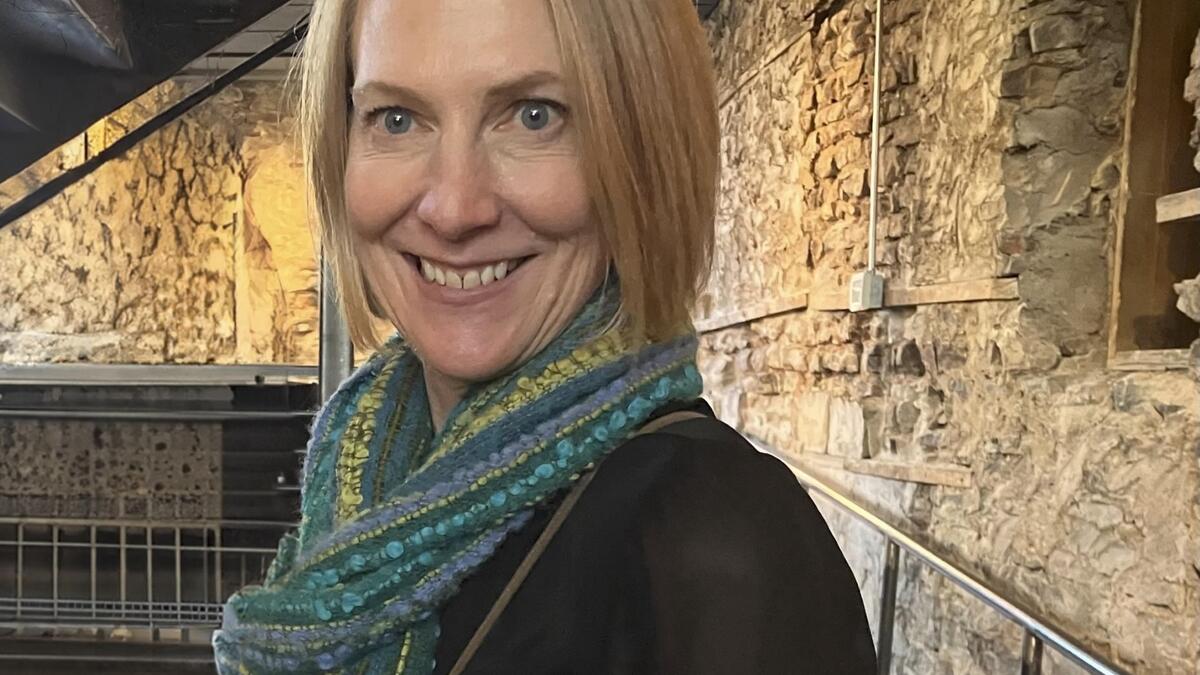ASU anthropology professor earns Outstanding Doctoral Mentor Award

Cindi SturtzSreetharan. Courtesy photo
Cindi SturtzSreetharan, a professor in the School of Human Evolution and Social Change, recently received the Outstanding Doctoral Mentor Award as part of the Graduate College’s 2023–24 Outstanding Faculty Mentors.
The recipient of the Outstanding Doctoral Mentor Award is chosen by the Graduate College at Arizona State University, based on the faculty member’s portfolio and letters of support from their students, postdoctoral fellows and faculty chair.
SturtzSreetharan, a linguistic anthropologist, examines how language shapes human understanding and everyday life. Her recent research centers on the intersection of language, the body and medicine, and the common conversation engagement strategy called “fat talk.”
“It feels validating, but it’s important to know that mentoring is never a solo endeavor,” SturtzSreetharan said about the award. “It takes a village, and ASU provides the space to create that and thrive in it. So while it is validating, I also feel this award should go to many people.”
Her mentorship is deeply rooted in her expertise as a linguistic anthropologist. She recognizes the nuances of languages and the importance of fostering a safe and inclusive environment for mentorship.
Through thoughtful questioning, active listening and collaborative engagement, she establishes mutual expectations and fosters meaningful academic growth.
“Questioning alone is a really difficult interaction. However, the only way to ascertain what someone wants is usually by asking questions,” she said. “I give students options and explain why I’m asking the question.
“For example, instead of asking why someone is getting a PhD, which can seem threatening, I say something like, ‘I understand you want a PhD. What are your long-term goals? I am asking this question to confirm what we must do to achieve those goals.’”
SturtzSreetharan also acknowledges that mentorship is a collaborative process and that she continues learning from her students.
“Students may not realize it, but I’m often a mentee, too, especially when the students are pursuing topics of inquiry that are not within my direct expertise,” she said. “I don’t assume my skills are complete but must nurture them, changing them to meet mentees where they are.”
More University news

ASU earns 'Gold' in inaugural Times Higher Education Online Learning Ranking
Arizona State University continues to set the standard in online learning, having earned a Gold rating in the inaugural Times Higher Education Online Learning Ranking 2024. This recognition…
2024 President's Awards honor ASU projects for real-world impact
Ten Arizona State University programs were honored for their real-world solutions during the annual President’s Awards ceremony held on Dec. 6.The awards formally recognize successful solutions in…

ASU celebrates Paul C. Helmick Center renaming
When Mary Jo Helmick cut the ribbon at the front doors of the Paul C. Helmick Center at Arizona State University, more than 100 education leaders, faculty, staff, family and friends cheered.“This has…